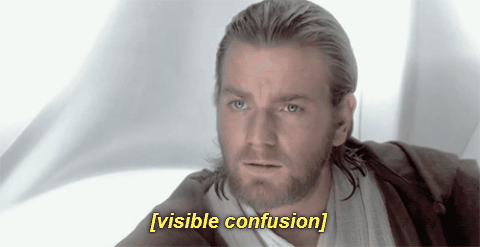
There are many things in this world that I do not understand. I do not profess to be an expert on the stock market (in the stock market? AT the stock market?). I’m baffled by the inner workings of a car. I will never comprehend how anyone can calculate complicated equations in their head. I don’t know why my hair only looks good on days where I don’t have anything on.
But one thing I do understand now, is superannuation. It took me a while to get to this point, because I too was clueless about the world of interest and savings (which my bank account can absolutely agree with).
But here we are, and I’m here to pass on that valuable information onto you friendly, financially-unfocused folk. Here goes:

The basics are simple: each time you get paid, your employer pops a portion of money into a superannuation fund that you choose, in order to set you up for your future. Except that sounds like a problem for future-you, right? Trust me, it’s not.
Super is essentially a way to save up money for your retirement, because we all know that at 20 years old you’re not anticipating your eighties.
First thing to do is research and find a superannuation fund that you can work with. Some of the important things to consider are the investment options, whether the fund invests your money in areas that you support, and what fees apply.
But let’s unpack that, because just reading it made my head go “nope, not for me”.

First up: performance. In the way that interest rates go up and down, so too does the performance of super. It’s pretty normal and nothing to go nuts over. Share markets globally can become volatile at times. Just make sure you know, and are comfortable with, the type of investment options selected on your current super account.
For example, a high growth option can fluctuate short term, but potentially provides a longer term growth, whereas safer options like a balanced fund, are lower risk and potentially lower returns.
It’s worth reviewing your options every now and then to make sure you’re still happy with how it’s performing. Superannuation is a long-term investment after all, and all investments contain some risk, so some years returns might be better than others — there’s no guarantee.
Then you’ve got where the funds in those investments go. If you’ve got no clue what this means, chances are this is where your brain farts and tries to ignore it until it goes away (hint: it won’t). The important thing that you have to do is make sure that you invest with a fund that takes your cash and puts it somewhere you’re happy with.
Because basically, the money that you and your employer put into your super fund is then invested in things like cash, property and shares — kind of like a managed fund where someone else does all the work for you.

Last thing to worry about? If you’re one of those people who’ve somehow collected half a dozen superannuation accounts over the years (whether by not remembering the details when filling in new job paperwork, or just straight-up thinking it won’t matter over time). Spoiler alert: doing this means you could be paying duplicate fees and having multiple accounts may not be appropriate for you.
So if you’re that sort of person, you might want to consider consolidating that all into a super fund that has investment options that make sense to you, invests your cash in a way you approve of, has the insurance that’s appropriate for you and that you’re on board with any fees.
Just a heads up before consolidating your super accounts – take a sec to consider where future employer contributions will be paid, the other fees you may incur with the rollover, and losing your current insurance benefits from your existing provider(s) when the insurance is cancelled. It could make your life a lot easier in the long run.
All in all, you should keep track of your super (via your designated fund or via MyGov), and make sure you’re getting what you’re owed, so that when you’re ready to saunter into the office and announce your retirement, it goes off with a bang.
This article was sponsored by ING (ING Bank (Australia) Limited ABN 24 000 893 292, Australian Financial Service Licence 229823) and written by PEDESTRIAN.TV. It’s also general in nature and does not take into personal circumstances, objectives or needs. Make sure you consider the appropriateness based on what you need and your financial situation. So speak to the experts before making financial choices, ok?







